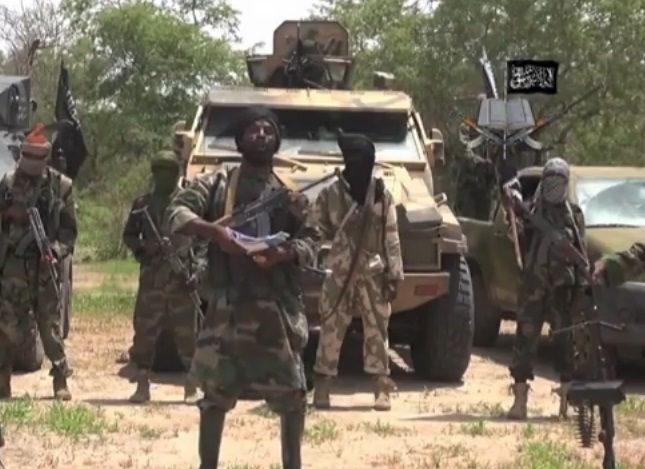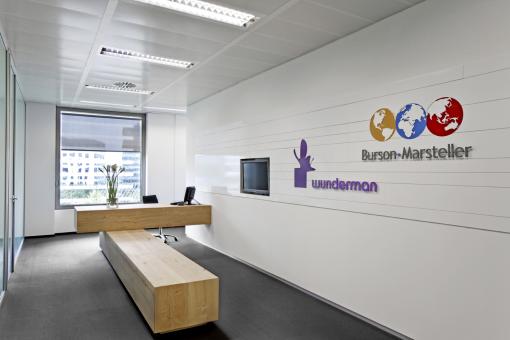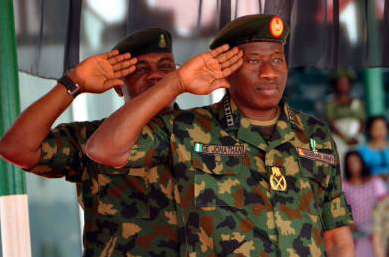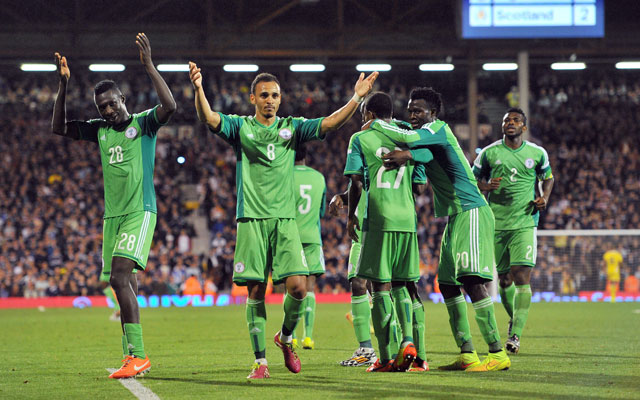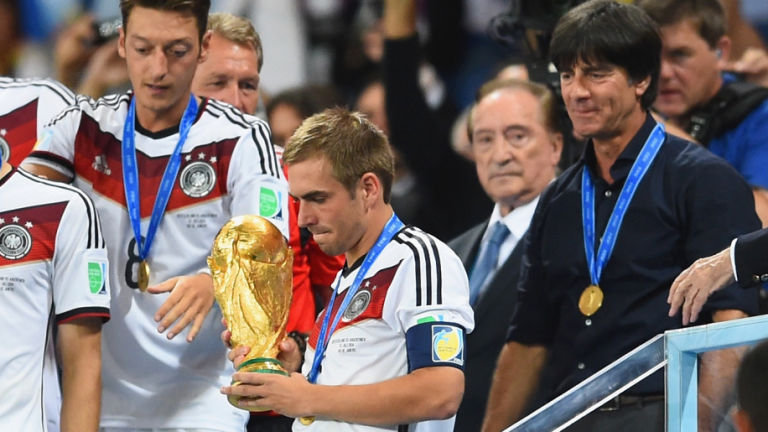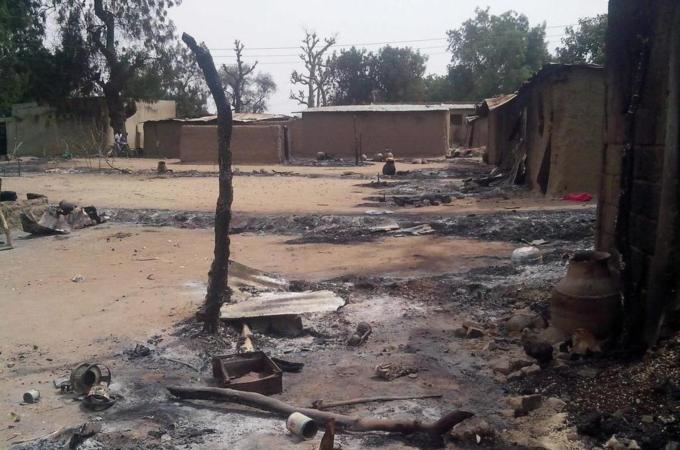Kremlin insiders predict more Western aid and possibly intervention for Nigeria as lessons from Iraq begin to sink in.
The traditional view in the Kremlin on any conflict in different parts of the world, be it social unrest, a popular uprising, an overthrow of government or a rise in terrorist activity, has always come down to one question: What’s in it for the Yanks? Or, if we put it in the language of the statements that have been coming from Moscow in the past several months over Ukraine: What’s in it for our American partners?
The basic thinking behind this is that Washington looks at the whole world as its backyard and pursues its agendas with remarkable determination and ruthlessness, especially when it comes to its economic and financial interests, including energy supply. As in, how this or that country is positioned strategically, whether it has substantial oil and gas and other resources, has important pipelines running through it or lies along major sea routes.
The old communist concept of rushing in to make life difficult for the US whenever a crisis breaks out has dissipated now, mostly due to lack of money and military muscle. But as the civil war in Syria has demonstrated, when Russia does get involved, things get done.
Advertisement
When it comes to the current turmoil in Nigeria and the dramatic rise of the threat from the armed group Boko Haram, the question, “What’s in it for our American partners?” has not yet provided any real answers for the Kremlin. In fact, the view there is that had US First Lady Michelle Obama not lent her support to the very high profile “Bring Our Girls Back” hashtag campaign after Boko Haram kidnapped more than 200 schoolgirls in the province of Borno, the US, and the West, would have probably remained indifferent to the crisis in Nigeria.
Rise of Boko Haram
Boko Haram, which had emerged initially as a non-violent movement that promoted Islamic values and rejected western culture and its “decadence”, turned to violence in 2009, and since 2010 has been carrying regular attacks, rapidly growing in numbers as a result of a recruitment campaign, both in Nigeria and beyond.
Advertisement
What adds to the confusion, from the point of view of Russian officials, is that Boko Haram, which is based in the north of Nigeria, is actually fighting for control of the area that has no oil reserves.
Nigeria is the biggest oil producer in all of Africa and a big exporter of oil to the US. Incidentally, Russia’s trade at the moment with Nigeria amounts to only around $300m a year, which pales in significance compared to other major players. But the thinking in Moscow is that this situation has to change if Russia is to make a return to Africa.
The interesting angle on the crisis in Nigeria is that it is seen in Moscow as political conflict rather than a religious one, even though the country is equally split between Muslims and Christians. As the thinking in Moscow goes, if it was a classic “religious war”, then Boko Haram would not have been indiscriminate in murdering both Muslims and Christians.
Boko Haram fighters are now taking over entire villages in the north, looting and torching them to the ground, killing dozens of people, and then disappearing without trace. The group has mastered the techniques of mobile guerrilla warfare, making it extremely difficult for the Nigerian army to track down its units. Some of the attacks bear the hallmarks of publicity stunts carried out in broad daylight. As a result, a feeling of total chaos is created, with the opposition blaming the government of President Goodluck Jonathan for its inability to prevent the carnage.
Advertisement
Opposition benefits
After every attack, everyone is reminded that there is still no trace of the over 200 Chibok schoolgirls, although recently, bizarre reports have surfaced that 60 of them have supposedly managed to escape while the terrorists were looking the other way.
Nevertheless, the kidnapping on such a vast scale was obviously intended as a blow to Jonathan’s regime first and foremost, because selling the girls for around $20 each was not really going to enrich Boko Haram. So this was more of a slap on the face of the government in power that could only benefit the opposition.
In politics, anything that happens in a year leading to a big election should be always treated as a build up to that election.
Advertisement
And in Nigeria, the next presidential election is going to take place in February 2015, with the opposition having a mountain to climb, considering that the ruling People’s Democratic Party (PDP) got a substantial majority at the polls in 2011. The PDP politicians have been accusing the opposition, the All People’s [Progressives] Congress (APC) of having links with Boko Haram, but the opposition has been strenuously denying it.
Jonathan may be wary of being seen to play politics, but that boat has already sailed. Who knows, an investigation may reveal a far more complex web of deceit that involves the APC and some members of Jonathan’s government.
Advertisement
According to Russian experts, the recent upsurge in Boko Haram violence and the readiness to operate in broad daylight and take on the army and the police proves that the group has been getting some training and advice from outside. Some reports have linked the group with terrorist networks across Africa and the Middle East like al-Shabab, al-Qaeda and Ansar al-Sharia when it comes to combat training, funding and the exchange of military hardware and weaponry.
The one conclusion that the Russian experts have drawn is that the US and their western allies have missed the growth of extremist groups, which has already manifested itself in Iraq with large parts of it now controlled by the Islamic State group, formerly known as the Islamic State of Iraq and the Levant.
Advertisement
Disastrous oversight
How is it possible for US military and intelligence sources on the ground, both in Iraq and Syria, to have missed the Islamic State group amassing its forces and invading Iraq? It is anyone’s guess. But it’s a disastrous oversight by any standard. The same applies to Nigeria, with the US and other western nations having woken up to the reality of the Boko Haram threat only when the situation started to spin out of control. All things considered, Jonathan’s regime is still a better option than the coalition of the Muslim extremists that is shaping up now with an aim to win next year’s elections.
Advertisement
Russian military analysts predict a rise in violence in Nigeria leading up to the presidential election next year. Some even claim that increased international aid, perhaps even an intervention, may be on the cards as the lessons of Iraq are starting to sink in, both in western and African capitals. As one Russian official told me, “Losing Nigeria to Muslim fundamentalists is simply a no go, whichever way you look at it. What is happening now in Iraq has been a rude wake-up call for Washington.”
Some experts fear that Jonathan may have to widen the state of emergency in the north and even postpone the elections next year, if the situation does not improve. It is worth remembering that the leading APC candidate, Mahammadu [Muhammadu] Buhari, has been accused of inciting a violent uprising after losing the 2011 presidential election, resulting in nearly 1,000 deaths. Next year, some fear, this could be even worse.
Wake up call or not, if the West and African countries don’t take drastic steps to reign in Boko Haram and its backers, both in Nigeria and beyond, we might see the recently crowned “biggest economy in Africa” thrown into total disarray.
Alexander Nekrassov is a former presidential and Kremlin adviser. This article was originally published by aljazeera.com.
Add a comment

